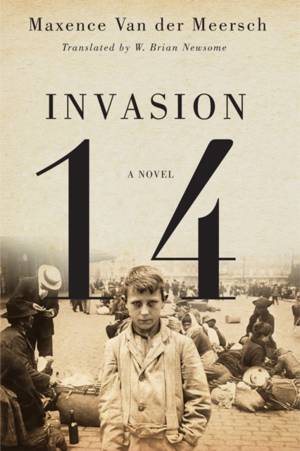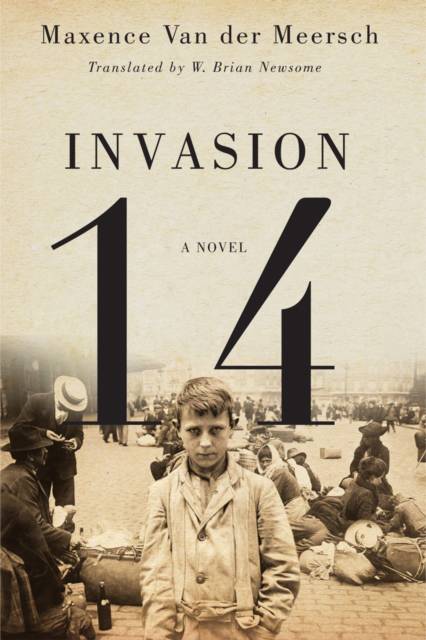
- Afhalen na 1 uur in een winkel met voorraad
- Gratis thuislevering in België vanaf € 30
- Ruim aanbod met 7 miljoen producten
- Afhalen na 1 uur in een winkel met voorraad
- Gratis thuislevering in België vanaf € 30
- Ruim aanbod met 7 miljoen producten
Zoeken
Omschrijving
Based on personal experience, survivor testimony, and documentary research, Invasion 14 portrays the German occupation of northern France during World War I. Regarded by critics as Maxence Van der Meersch's finest work, the novel is set in Lille, Roubaix, and nearby villages along the Belgian border, with the front lines just miles away and the shelling routinely audible. An antiwar novel that goes beyond the trenches, this book is not about combat but its consequences, providing remarkable insights on the plight of French civilians and German soldiers as each group struggles to survive. A gripping epic that weaves together a vast range of characters, Invasion 14 provides a sweeping account of life under German rule and explores collaboration, resistance, and the grey areas between these stark choices, foreshadowing dilemmas the entire French nation would later face during World War II. Though originally published to great renown in 1935 - and considerable regional controversy - Invasion 14 was neglected after World War II, when national discourse focused predominantly on heroes of anti-Nazi resistance movements. As more nuanced understandings of war and occupation have evolved, Van der Meersch's masterful rendition of life along the Western Front has enjoyed a well-deserved renaissance. Presenting a new translation along with an introduction and explanatory notes, W. Brian Newsome captures the moving imagery of Van der Meersch's narrative, situates Invasion 14 in the context of the author's life experience, addresses issues of postwar remembrance, and positions the novel amid literary movements of the time.
Specificaties
Betrokkenen
- Auteur(s):
- Uitgeverij:
Inhoud
- Aantal bladzijden:
- 504
- Taal:
- Engels
Eigenschappen
- Productcode (EAN):
- 9780773547544
- Verschijningsdatum:
- 5/06/2016
- Uitvoering:
- Paperback
- Formaat:
- Trade paperback (VS)
- Afmetingen:
- 152 mm x 229 mm
- Gewicht:
- 725 g

Alleen bij Standaard Boekhandel
+ 96 punten op je klantenkaart van Standaard Boekhandel
Beoordelingen
We publiceren alleen reviews die voldoen aan de voorwaarden voor reviews. Bekijk onze voorwaarden voor reviews.











